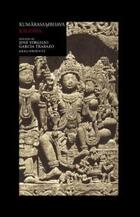
Kumārasamm.bhava or "The Origin of Kumāra" is an epic-lyrical poem by Kālidāsa, the most famous author of classical Indian literature, whose time of activity is dated around 400 AD. Throughout its eight songs, the events that lead to the union of Śiva and Pārvatī, two of the most important deities of the Hindu pantheon, are paraded; The fruit of this union will be Kumāra, the future god of war who will succeed in overthrowing the tyranny of the demon Tāraka. The description of Himālaya and of his daughter Pārvatī (canto I) give way to the assembly of the gods - who come to Brahmā saddened by the dominion of the evil demon - (II), the burning of the god of Love for having disturbed the deep asceticism of Śiva (III), the lament of Rati, the wife of Kāma (IV), the severe asceticism of Pārvatī, which manages to soften the spirit of Śiva (V), the request for a hand (VI), the wedding ceremo...read more







